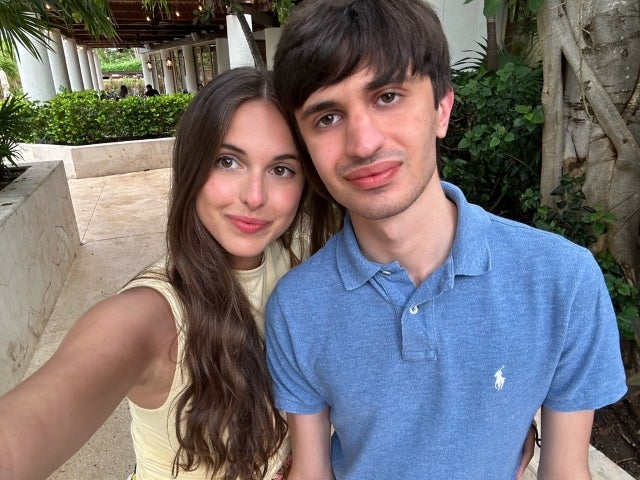Balancing love and responsibility: A sister’s perspective on autism and caregiving

Anna Katalifos, a 27-year-old PhD student in the Human Development Program in the Educational and Counselling Psychology department at McGill University, serves as an Individual Education Plan (IEP) Support Team Worker in the Student Services department at the English Montreal School Board. She is also a sister to 22-year-old Manoli Katalifos, who is autistic. Anna believes that this unique sibling experience has profoundly influenced her life choices, outlook, advocacy efforts and role as a big sister and caregiver.
Manoli received a formal diagnosis at age 3. Anna recalls noticing differences herself and having conversations with her parents about how his life would be different from hers and how he would communicate differently. Although she had some apprehensions, the close-knit nature of her family allowed her to ask questions and engage in open discussions about autism with her parents and peers, leading her to become one of Manoli's strongest advocates.
One challenge during her childhood was navigating their differing communication styles. She feels that she had to “grow up a little faster” when she took on the role of caregiver as a child. Her efforts included adapting to his interests, such as the piano, and employing a lot of trial and error. His communication significantly improved when he turned 16, allowing him to become more confident. This helped strengthen their relationship.
Anna feels it was more about experiencing life together and less about teaching him, although she did focus on teaching him more expressive language, adaptive skills and some social skills. However, “he has taught me much more, such as love, patience and generosity. He is the most giving person I know; he is always there to support me.” She shares how Manoli supports her after difficult workdays, has influenced her career in autism research and has taught her resilience, humour and calmness.
Being a caregiver has always been a natural part of Anna's life. She never felt it was imposed on her, but she has incorporated Manoli into her decisions. “Being a caregiver has become a part of my identity. I couldn't envision my life going any other way, despite its challenges. There is definitely an added layer of responsibility that I will always have, and it is a positive thing.” She believes that helping Manoli achieve his goals has made her a more understanding, well-rounded person and a better researcher.
Each developmental stage has presented challenges for Anna. In childhood, it was navigating communication styles and social settings. Adolescence involved her own self-discovery journey and navigating the caregiver dynamic. Now in adulthood, the challenge is balancing the logistics of being a supportive sister, ensuring Manoli can achieve his goals, and attending to her own self-care to succeed in her life.
Anna has considerations for the future, such as navigating familial changes and her life transitions. She is confident that Manoli will always be a part of her life. She acknowledges that new challenges may arise, but her strong sibling relationship will guide her. “The sibling relationship is the longest one I will ever have. My future and his future are completely intertwined, and that is great.”
Anna has encountered frustrations in the community despite advances in autism awareness. She notes that she has recently experienced more hopeful stories of people accommodating Manoli’s needs. “People are becoming more accepting, aware and human.” While negative experiences and stigma were more common in the past, Anna has witnessed a cultural shift towards more positive interactions. Outreach in the community should focus on “making spaces and communities more inclusive.”
Anna has no regrets but wishes she had worried less about developing a close relationship with Manoli. They are now truly connected best friends who share a night routine, watch movies and videos together, and have similar interests and food preferences. She realizes she always had the tools to be a supportive sister and a strong caregiver to face any adversities. Her advice to other sibling caregivers is to practice self-care strategies intentionally, no matter how minute, from a skincare routine to listening to favourite music. “It is easy to fixate on what someone else needs, which can be unhealthy for both people involved. Be kind to yourself; try to remain optimistic. People can surprise you: your sibling, the community, your friends. Reach out to other siblings and support organizations, have conversations with your family and sibling to help guide you in your caregiving role.”
Tania Piperni is an autism spectrum disorders consultant at the English Montreal School Board. She has a Master of Education in Educational Psychology from McGill University.









